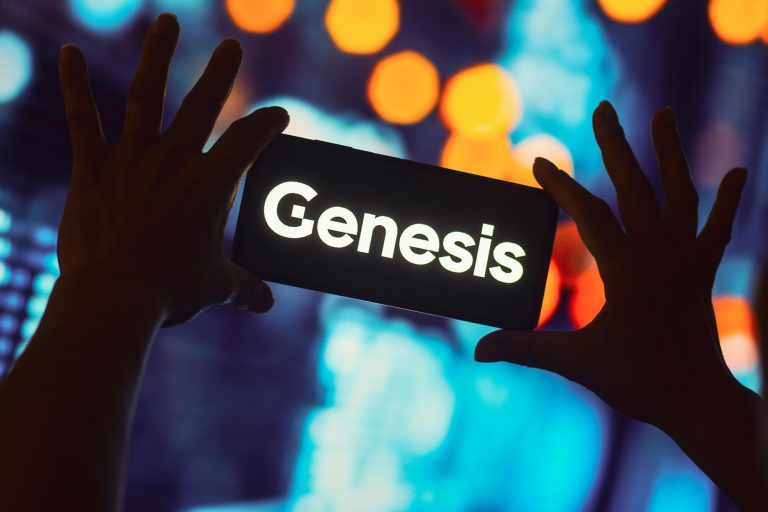
Digital Currency Group (DCG), the parent company of Genesis crypto exchange, said it expects to resolve the Chapter 11 bankruptcy case of the exchange soon. The company filed for bankruptcy protection in June, citing liquidity issues and regulatory challenges. DCG is one of the largest and most influential companies in the crypto space. It owns and operates several subsidiaries, including Genesis, a leading crypto trading and lending platform, Grayscale, a crypto asset manager, CoinDesk, a crypto media outlet, and many others. DCG has been a pioneer and a supporter of innovation and adoption in the crypto sector.
In a blog post, DCG CEO Barry Silbert said that the company has been working closely with the bankruptcy trustee, creditors, and regulators to find a solution that would allow Genesis to resume operations and repay its debts. He said that the company has made significant progress and hopes to announce a resolution in the coming weeks.
Silbert added more details about the bankruptcy situation, explaining that Genesis had faced a series of setbacks that led to its financial difficulties. He said that the exchange had suffered from a cyberattack in March, which resulted in the loss of some customer funds and data. He also said that the exchange had faced increased scrutiny and pressure from regulators, who had imposed stricter rules and requirements on its activities.
Register for Tekedia Mini-MBA edition 19 (Feb 9 – May 2, 2026): big discounts for early bird.
Tekedia AI in Business Masterclass opens registrations.
Join Tekedia Capital Syndicate and co-invest in great global startups.
Register for Tekedia AI Lab: From Technical Design to Deployment (next edition begins Jan 24 2026).
However, in 2022, DCG announced that it had filed for Chapter 11 bankruptcy protection in the U.S. Bankruptcy Court for the District of Delaware. The company cited “unprecedented market volatility, regulatory uncertainty, and operational challenges” as the main reasons for its decision. DCG also said that it had secured $500 million in debtor-in-possession financing from a group of lenders led by Silver Lake Partners, a private equity firm.
Chapter 11 bankruptcy is a legal process that allows a company to reorganize its debts and assets under the supervision of a court. It is different from Chapter 7 bankruptcy, which involves liquidating all the company’s assets and distributing them to creditors. Chapter 11 bankruptcy gives the company a chance to continue operating while negotiating with its creditors on a plan to repay them over time.
According to DCG’s press release, the company intends to use the Chapter 11 process to “strengthen its balance sheet, optimize its cost structure, and position itself for long-term growth”. DCG also stated that its subsidiaries, including Genesis, will continue to operate as usual and that its customers and partners will not be affected by the bankruptcy filing.
However, some experts and analysts have expressed doubts and concerns about DCG’s future and its impact on the crypto industry. Some of the questions that have been raised include:
How will DCG’s creditors react to the bankruptcy filing and what are their claims on DCG’s assets?
How will DCG’s bankruptcy affect its subsidiaries’ operations, especially Genesis, which holds billions of dollars’ worth of crypto assets on behalf of its clients?
How will DCG’s bankruptcy affect its reputation and credibility in the crypto space and among regulators, investors, and customers?
How will DCG’s bankruptcy affect the overall sentiment and confidence in the crypto market, which is already facing significant challenges from regulatory crackdowns, cyberattacks, and environmental issues?
He elaborated on how the cyberattack happened, saying that a group of hackers had exploited a vulnerability in the exchange’s software and gained access to its servers. He said that the hackers had stolen some of the exchange’s cryptocurrency holdings and deleted some of its records and backups. He said that the attack had caused significant damage and disruption to the exchange’s operations and security.
He said that these factors had caused Genesis to lose some of its market share and revenue and had made it harder to access liquidity and funding. He said that the company had tried to address these issues but had ultimately decided to file for Chapter 11 protection to avoid further losses and protect its assets.
Silbert said that DCG remains committed to the crypto industry and believes that Genesis is a valuable asset that can provide innovative services to its customers. He said that DCG has invested over $200 million in Genesis since acquiring it in 2016 and has supported its growth and expansion into new markets and products.
He also thanked the Genesis team, customers, and partners for their patience and support during this difficult time. He said that DCG is confident that Genesis will emerge from this process stronger and more resilient than ever.
“We are optimistic about the future of Genesis and the crypto industry as a whole. We believe that crypto is here to stay and will continue to transform the world of finance. We look forward to sharing more updates with you soon,” Silbert wrote.



